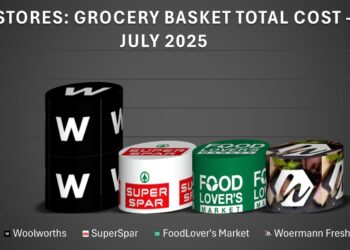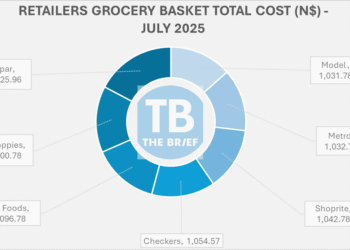
The Namibia Diamond Trading Company (NDTC) says since its establishment 16 years ago, it has facilitated the availability of over N$75 billion worth of rough diamonds to its sight holders for value-addition purposes.
 The company’s Chief Executive Officer (CEO), Brent Eiseb, emphasised the industry’s commitment to transparency and sustainability throughout the diamond pipeline.
Eiseb said the commitment is evident from responsible diamond recovery practices to the collaborative efforts that have made Namibia a leader in downstream diamond beneficiation.
“NDTC’s provision of rough diamonds valued at over N$75 billion was made available to NDTC Sightholders for value addition purposes. This substantial investment has contributed to the growth of the downstream industry in Namibia,” Eiseb said while reflecting on the industry’s achievements.
He also underscored the impressive statistics regarding the processing of rough diamonds in Namibia.
“Approximately 85% of the rough diamond carats sold by NDTC to its Sight holders are now being fully processed within the country. This achievement is a result of collaborative efforts and difficult conversations among stakeholders, proving the industry’s commitment to Namibia’s mineral beneficiation strategy,” he said.
The CEO boasts that the downstream diamond industry has not only created more job opportunities for Namibians but has also focused on sustainable employment and skills transfer.Â
“Over the past 12 months, there has been a 53% increase in Namibian jobs within the industry. Furthermore, the industry’s resilience during the Covid-19 crisis, expanding permanent jobs instead of witnessing widespread retrenchments, demonstrates its sustainability,” he noted.
Eiseb further noted that investments in cutting and polishing technology have been another crucial aspect of the industry’s growth.
“Millions of dollars have been invested in state-of-the-art technology, improving the competitiveness and sustainability of Namibia’s cutting and polishing sector. This demonstrates the confidence that investors have in the country’s diamond industry,” he said.
He highlighted the increase in the number of cutting and polishing factories in Namibia, stating that in the past 24 months, seven factories have commenced operations, with five of them receiving supply from NDTC.Â
Additionally, NDTC onboarded two majority Namibian-owned businesses through its Enterprise Development Program (EDP), contributing to the development of local entrepreneurs, he revealed.
Despite these achievements, Eiseb acknowledged that more needs to be done to unlock further opportunities in the beneficiation space.
“This requires a holistic approach, including favorable legislation and policies, access to financing, and support services that enhance Namibia’s competitiveness as a diamond beneficiation centre.”Â
Eiseb concluded by emphasising the industry’s commitment to sustainable practices and giving back to the communities in which they operate.
Speaking at an event held by Andre Messika Diamonds, Eiseb praised the company’s efforts to provide equal opportunities for differently-abled individuals, stating that their success would contribute to the overall success of the downstream industry in Namibia.
Andre Messika has taken on the initiative to promote local ownership and participation in the industry, by donating 25% of its shares to its local staff.
Â
Â
Â
Â
Â











